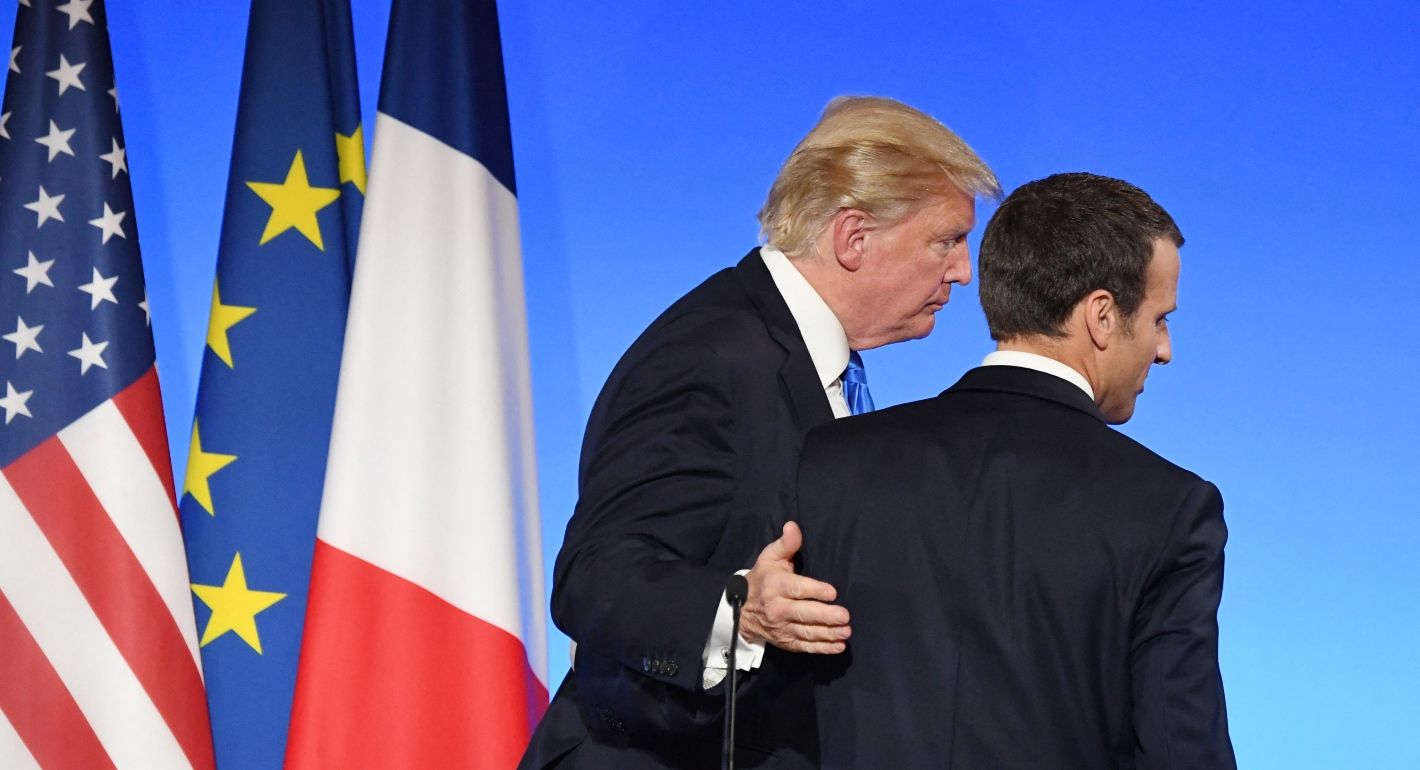Those around U.S. President-Elect Donald Trump who advocate for a rapid U.S. drawdown in Europe to better counter China would be wise to heed the law of unintended consequences.
Broadly speaking, the elevator pitch for such a rapid withdrawal goes something like this: The United States’ main threat is China, European countries are wealthy—with a combined GDP five times larger than Russia’s—therefore, Europe can take care of itself. The specifics and the timelines may vary, but overall, the U.S. withdrawal from Europe should be welcomed and will certainly not benefit U.S. adversaries since Europe can and should spend more on its own defense.
But the most fervent proponents of this approach seem to be hyper-compartmentalizing a hyper-interconnected world. In doing so, they run the risk of scoring an own goal: the strengthening of China’s economy.
The rapid withdrawal argument is divorced from empirical reality for a simple reason: It overlooks the European economic base of power that would make such a quick uptick in defense spending possible, especially when coupled with potential Trump trade tariffs.
In such a scenario, Europeans would probably double down on their trade relations with Beijing, since they would need it to maintain a modicum of prosperity to fund their increased defense effort. Far from reinforcing Washington, the proposed policies would only strengthen China’s role in the international system by forcing Europeans to align more closely with Beijing.
At the same time, Beijing would be very happy to redirect its own trade flows from the United States to Europe in order to counter the massive tariffs that it would suffer. In short, the United States would simply make China even more central to the world economy while cutting itself off from the allies most likely to support its policies.
Yes, for the Europeans this would be a short-term fix to alleviate the economic costs of the U.S. policies that would create more long-term dependency problems. But it is a risk that many European leaders would be willing to take if forced to choose between the immediate fiscal need to drastically invest in their defense and the long-term dependency on an authoritarian state like China.
To understand the importance of the economic dimension in security considerations, it is useful to draw a quick comparison between the United States and Europe in the past fifteen years. Since early 2020, America’s real growth has reached 10 percent—triple the average of other G7 nations. Among G20 countries, including major emerging markets, the United States stands alone in exceeding pre-pandemic projections for output and employment, as reported by the International Monetary Fund. Per capita, American economic output is now approximately 40 percent higher than that of Western Europe and Canada, and 60 percent higher than Japan’s—about double the gaps observed in 1990. In short, the United States is a large country blessed with natural resources. The size of its consumer and capital markets means that attractive products can be distributed at scale across the country, while the shale revolution has contributed to 10 percent of the U.S. GDP growth since 2010.
Europe, on the other hand, is a politically fragmented, aging continent without any independent energy source, which limits its current economic potential.
The EU’s so-called single market suffers from continuous fragmentation, with twenty-four different languages stifling cross-border trade and there are numerous intra-EU barriers to trade along national lines, such as different taxation systems, regulated professions, or national legislations. The capital markets are also fragmented, which limits investment opportunities. Furthermore, Europe has an aging population, and ever-tightening immigration policies exacerbate the existing labor shortages. Perhaps most crucially, Europe’s energy dependence make it vulnerable to price fluctuations, which contribute significantly to its competitiveness gap with the United States: Gas retail and wholesale prices are currently three to five times higher than in the United States, while electricity retail prices are two to three times higher.
Instead of pushing Europeans into Beijing’s arms out of economic necessity, the United States should further incentivize smart derisking from China. This is in Washington’s interests, as in the event of a crisis over Taiwan, the EU’s ability to exercise economic statecraft will be a critical factor in upholding deterrence. In fact, as the European Council on Foreign Relations argues, “EU sanctions threats could be game-changing, as Beijing has probably not priced in such measures.”
Indeed, Europe’s strongest leverage lies in trade measures targeting China’s access to the EU market. There is an important calibration exercise here: Some trade relation is beneficial because it gives the EU a measure of leverage over China. However, pushing Europeans over the fence and making them double down on their relationship with Beijing, as the proposed tariffs and troop withdrawals would do, would be counterproductive, as the costs of imposing sanctions would become far too high in European capitals.
Hence, any U.S. strategy to deter China should take into account the world’s largest trading bloc—the EU. Whether the union ends up aligning with the United States is largely up to Washington and how it manages the economic security dimension of the transatlantic relationship. While Europeans should spend more on defense, and increasingly are, the shock therapy idea being flouted in Washington would only hurt U.S. interests in the short and long run.
Instead, Washington should facilitate transatlantic trade in order to incentivize the reconvergence of economic and security priorities. This is not a new situation: During the Cold War, U.S. policymakers understood that facilitating Europe’s prosperity was crucial for establishing common security.
Olivier Schmitt is a professor at the University of Southern Denmark’s Center for War Studies and a nonresident associate fellow at the NATO Defense College.











